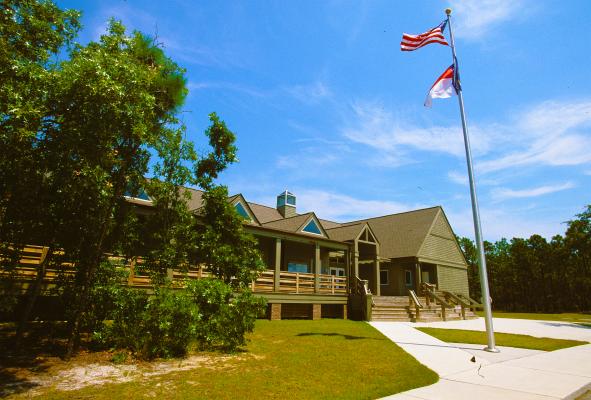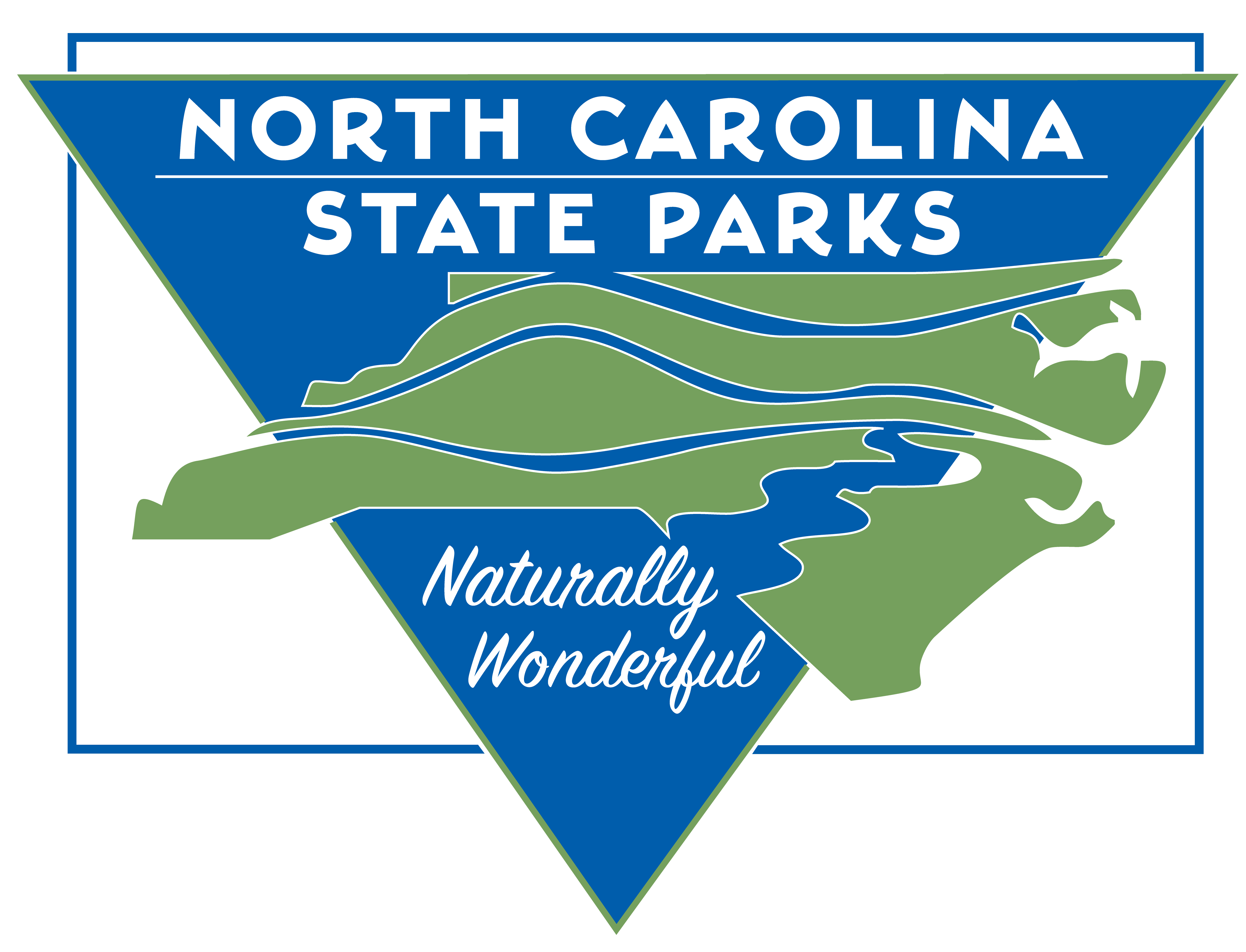
Stop by the park visitor center, conveniently located near the park entrance, to pick up a map, get your Passport book stamped, or ask questions about the park.
The visitor center features an exhibit hall that showcases the ecology of the park, focusing on the fascinating carnivorous plants that call the park home. There are interactive displays for kids to enjoy and static displays that cover other topics such as area history and prescribed burning.
Inside the visitor center are a classroom and an auditorium that can be reserved.
Hike the Flytrap Trail and look for these unique carnivorous plants. Venus flytraps are very small, so you will have to peer closely as you walk the trail. But be careful! These plants are especially prone to trampling, so help us preserve these rare plants by staying on the trail at all times.
Or, join us on Saturdays from March to early November, for a guided hike with one of our rangers! Your ranger guide will not only help you find these tiny plants, they will also answer any and all of your questions about carnivorous plants.
Stretch your legs and hike the park's longest trail. At 3 miles, the Sugarloaf Trail offers a great opportunity to explore the various environments at Carolina Beach State Park — including an evergreen forest, the limesink ponds, coastal sandhill, longleaf pine savanna and a cypress swamp. Just before you get to the halfway point on the trail, you will see the trail's namesake, the 50-foot Sugarloaf Dune. For more than three centuries, it has served as a navigation point for boaters piloting down the Cape Fear River.
Come to one of the regularly scheduled astronomy programs hosted by the Cape Fear Astronomical Society or save the date for the next Star Party during the N.C. Science Festival in April.
If you would prefer to do it on your own, spend a night at the park in a tent, RV or in one of the camper cabins and don't forget your telescope!
Becoming a Junior Ranger gives kids the opportunity to learn about and explore North Carolina's beautiful state parks with their families or scout, school and homeschool groups through self-led educational activities and programs. Junior Rangers may also have the opportunity to help park rangers protect the health of the park through short community service projects.
Kids visiting the park for the day can complete activities in the guide, attend park-led programs, complete small community service projects given by park staff, participate in the EcoExplore program, and hike in the park. Doing these activities earns acorns. Upon caching 20 acorn points, Junior Rangers can receive the park's unique Junior Ranger patch.
Pick up a Junior Ranger Activity Guide at the visitor center or print your own from the documents list:
Activity Booklet
- Junior Ranger Activity Booklet (PDF)
- Activity Booklet en español (PDF)
- Activity Booklet in black and white (PDF)
Pocket Activities for Any Park
- Litter Scavenger Hunt (PDF)
- Meet the Beetles (PDF)
- Girl Scouts Love State Parks for Daisies (PDF)
- Girl Scouts Love State Parks for Brownies (PDF)
- Girl Scouts Love State Parks for Juniors (PDF)
Pocket Activities for Carolina Beach State Park
Kids in Parks hosts a nationwide network of family-friendly outdoor adventures called Track Trails. Each Track Trail features self-guided brochures and signs that turn your visit into a fun and exciting outdoors experience. Best of all, you can earn prizes for tracking your adventures!
The Carolina Beach Track Trail is a section of the Snow's Cut Trail that is a self-guided trail for kids. Activity brochures may be found at the picnic area trailhead and at the family campground trail access near campsite #20.
The park visitor center features environmental education exhibits. Carnivorous plants dominate the exhibit hall, which is open during visitor center hours. Displays allow visitors to look deeper into the diversity of carnivorous plants in the park. From Venus flytraps to pitcher plants, or butterworts to bladderworts, the hands-on exhibits allow for interactive learning about these intriguing species.
Exhibits include:
- Biodiversity: Several static displays on the biodiversity of the park explain the coquina rock outcrops, the limesink ponds, and the five carnivorous plants found in the park. Another display explores prescribed burning, which plays a large role in this environment.
- Video on carnivorous plants: Visitors can watch a short video on the carnivorous plants found in the park and how they catch their prey.
- Interactive carnivorous plant: This display allows visitors to experience how these fascinating plants capture their prey.
- Maze game: Visitors attempt to navigate a ball, which represents an insect in the park, around a maze without taking a wrong turn and being eaten by a carnivorous plant.
- Touch table: Build a structure with tree parts. Explore the contents of the side pockets. This small table has lots of interesting items for young visitors to discover.
- Where do I live? Raccoons, fox, deer, birds, snakes and frogs all call Carolina Beach State Park home. Magnetic boards of three habitats found within the park allow young visitors to match the correct animal with its habitat.
- History of the area: Located along the walls in the visitor center hallway, there are static displays showing the history of the area and of the park.

